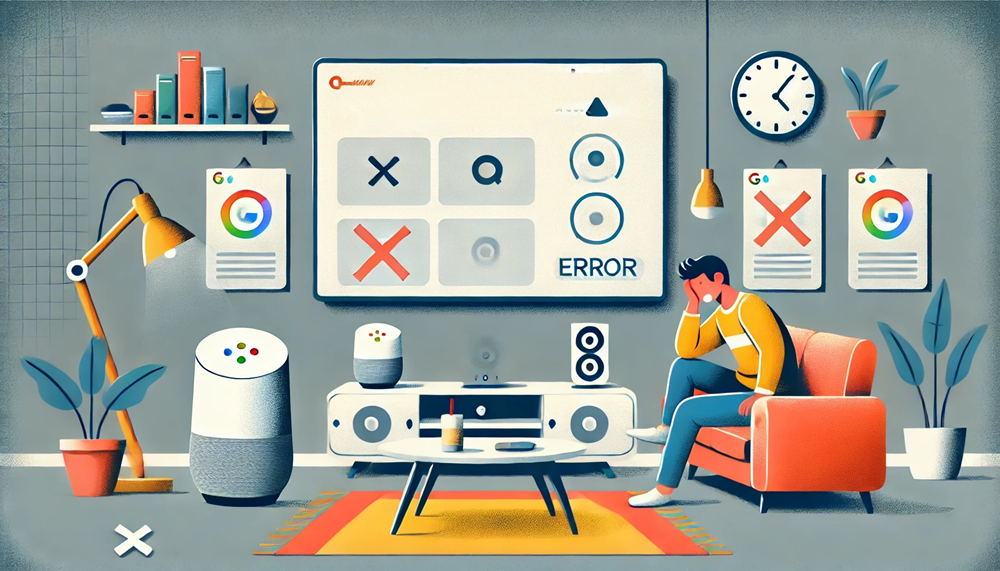Google Home Devices Face Widespread Outages: What Users Need to Know
The year 2025 has been an exciting time for smart home technology, but it hasn’t been without its challenges. Recently, Google Home devices—a staple in many smart homes—experienced widespread outages, leaving millions of users frustrated and disconnected. With the increasing reliance on smart home systems, this disruption highlights the vulnerabilities of cloud-dependent devices and the need for backup plans. Here’s what happened, why it matters, and how to prepare for similar situations in the future.
The Outage: What Happened?
On January 3, 2025, Google Home devices worldwide experienced connectivity issues. Smart lights, thermostats, security cameras, and voice assistants were rendered unusable for several hours.
Root Cause
Google confirmed that the outage was caused by a server misconfiguration during a routine system update. The misstep temporarily disabled the ability of devices to connect to Google’s servers, leaving users unable to issue commands or control their devices via the Google Home app.
Scope of Impact
- Affected Devices: Smart speakers, displays, thermostats, lights, and security systems.
- Duration: Services were disrupted for up to six hours in some regions.
- Global Reach: Reports of outages spanned across the US, Europe, Asia, and Australia.
Why It Matters
Smart home technology is designed to make life more convenient and efficient, but incidents like these reveal the downsides of heavy reliance on cloud-based ecosystems.
Key Concerns
- Dependence on Internet Connectivity: Without a stable connection to Google’s servers, even basic operations become impossible.
- Security Risks: Outages could potentially leave security devices, like smart locks and cameras, inoperable, raising safety concerns.
- User Frustration: For users who rely on these devices for daily tasks, even a short disruption can feel like a major inconvenience.
What Users Can Do to Prepare
While outages are rare, they are not entirely preventable. Here are some steps you can take to mitigate the impact of future disruptions:
1. Enable Manual Overrides
For critical devices like smart locks or thermostats, ensure you have manual options available. Most smart devices include a physical interface that allows you to operate them without an internet connection.
2. Diversify Your Ecosystem
Relying solely on one platform, like Google Home, can leave your entire smart home vulnerable during an outage. Consider integrating alternative ecosystems, such as:
- Amazon Alexa
- Apple HomeKit
- Samsung SmartThings
3. Use Local Processing Devices
Some smart home devices, such as the Hubitat Elevation Hub, prioritize local processing over cloud dependency. These devices can continue functioning even when internet connectivity is lost.
4. Stay Informed
Subscribe to status updates from your smart home provider. Google offers a G Suite Status Dashboard, where users can monitor system performance and outages in real-time.
5. Plan for Security
If you rely on Google Home devices for security, invest in backup systems, like traditional locks or battery-operated security cameras, as a failsafe.
How Google is Addressing the Issue
Google has acknowledged the outage and issued an apology to affected users. The company has pledged to:
- Enhance Server Stability: Google is implementing more rigorous testing protocols for system updates to prevent future misconfigurations.
- Improve Communication: Real-time alerts and better customer support during outages are being rolled out.
- Strengthen Infrastructure: Google is investing in redundancy systems to ensure devices can operate even during server disruptions.
The Bigger Picture: Are Cloud-Based Systems Too Fragile?
This outage raises a critical question about the future of smart home technology: Are we too reliant on the cloud? While cloud-based systems enable seamless updates, remote access, and voice integrations, they also create a single point of failure.
Emerging Trends to Watch
- Edge Computing: Devices that process data locally, reducing dependence on the cloud.
- Decentralized Systems: Blockchain-based platforms for more secure and reliable smart home operations.
- Interoperability Standards: The Matter protocol is emerging as a solution to unify devices across ecosystems, offering users greater flexibility.
Conclusion: Smart Home Resilience
The recent Google Home outage serves as a wake-up call for users and the industry alike. While smart home devices offer incredible convenience, incidents like these remind us of the importance of preparing for disruptions.
As technology evolves, both providers and users must prioritize resilience, ensuring that smart homes remain functional and secure, even in the face of unforeseen challenges.
Stay informed, stay prepared, and enjoy the convenience of your smart home with peace of mind.
